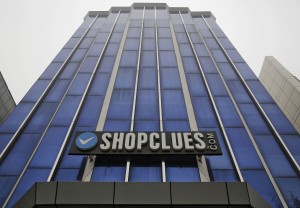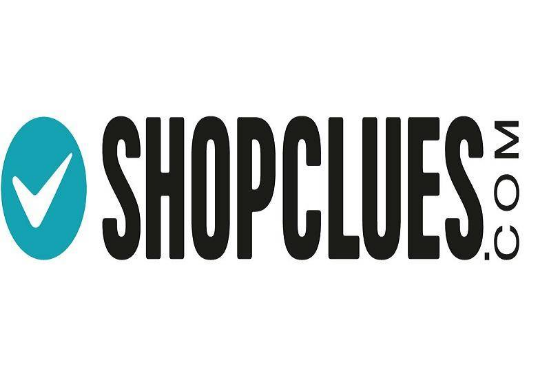In this blog post, Disha Mohanty, a student pursuing her LL.B (5th year) from National Law University, Odisha and a Diploma in Entrepreneurship Administration and Business Laws from NUJS, Kolkata, analyzes the corporate legal structuring of an e-commerce market, namely, Shopclues.
Introduction
Shopclues is one of the leading giants of the e-commerce market and occupies a substantial portion of the marketplace shares therein. Founded in 2011 by Sandeep Aggarwal and Sanjay Sethi, Shopclues, a horizontal marketplace[1] is headquartered in Gurgaon and is a subsidiary of Clues Network Private Limited, the parent company, Clues Inc having been established in USA[2].
Funding for Shopclues
Shopclues is currently one of the most successful models of the e-commerce marketplace notwithstanding its latest proposed series E funding which will provide for funding by institutional investors for the company to the tune of more than 100 million dollars with authorized capital worth 3500000 rupees and currently limited by shares[3], and following a zero inventory model serves to be an interesting study model which has essentially laid the ground rules for the e-commerce market. It’s unique in its kind as it is the first one to make a foray into the now lucrative field of online marketplace and hence can be said to have laid a precedent in the field. Therefore, the author seeks to analyze its structuring from the perspective of the requisite company laws applicable therein.
The current set of rules about Foreign Direct Investment do not permit FDI in e-commerce but do not extend the same restrictions to marketplaces,[4] a model which has been essentially used by Companies like Shopclues and Snapdeal to gain essentially entry into the market and secure foreign funding by the series of funding which takes place therein. While companies like Flipkart and Amazon etc. , primarily focus on their products being based on the structured retail product market, Shopclues differs on this account as it also targets the unstructured market, and out of the approximately 7,500 products the company has provided access to its site, close to 6,500 of these are regional brands [5]
While the primary marketplace model which Shopclues has followed is of business to consumer, it has also begun to consider venturing into the business to business marketplace model and has laid the groundwork for the same by tying up with Chinese major DHGate in addition to several other Korean players in order to stabilize its revenues. The latest funding though has taken place in 2016 which is Series E, with Shopclues eventually laying the path ahead to consider making an initial public offering on its cards.[6] aided by its funding procured from Tiger Global LP from the series of funding which took place in 2015 in its series D funding.
Structuring of Shopclues
Regarding the structuring of Shopclues, as a subsidiary of Clues Inc., as a private company, there are several points to be observed about the requisite compliances especially keeping in mind the impact structuring has, that can make or break a company’s funding process. While about India, there are four types of structures available as far as for-profits initiatives are concerned, the one relevant with Shopclues, i. e., its holding is that of a company, to enable and secure its investor’s faith.
Moreover taking into account its last series of funding which involves a considerable deal of FDI being brought in, a company will be the best initiative in this regard considering FDI permits the direct issuing of capital and is fraught with lesser number of restrictions when it pertains to a company even if the company does not happen to be under the Automatic route. As an e-commerce marketplace, there are several matters that have to be addressed such as the applicable tax regime (Service tax, VAT, etc.), fund structuring, compliance with the requisite labor laws, contract laws, in addition to ease which the subsidiary herein has in raising the term based debt. As Shopclues has seen a monumental increase in its employee strength, licensing by the Shops and Establishments Act would be a must too. Considering that some regional brands are involved it is only imperative to ensure that the relevant Intellectual Property rights based policies are also accounted for. An important aspect of these marketplaces is to address their stand as an intermediary and the consequent liabilities which they must adhere to [7].Post registration, and especially after the controversy concerning fake products an iron clad buyer and seller agreement has become a must for Shopclues.
One may also take into account the recent issues press note by DIPP which states that a single vendor or a group company cannot be responsible for more than 25 percent of total sales of the online firm or platform. While B2B has acquired the approval for 100 % FDI, subject to no pricing interventions by the firms which are provided by means of the discounts provided on the website by indirectly funding the discounts for the sellers, the issue lies with B2C which hence addresses Shopclues’ need to ensure its foothold in the B2B market field.
While analyzing the structuring of Shopclues, it must be noted that the company was incorporated in the US following which the Indian Office was established and subsequently the Shopclues venture took off, a fact that would solicit compliance requirement, especially on an annual basis. A private limited company was a wise choice in this case as it will increase the confidence of the investors in the company. Moreover as the venture in question is a holdings company which eases the entry of FDI as a stable form of investment by means of upstream investment, wherein FDI will technically not be counted as FDI per se, by means of a layered structure, wherein investment in the Upstream company that is Clues Ltd will be counted as zero if it falls below 50% and will essentially have a majority Indian shareholding and board.[8] This approach has helped Shopclues to procure investment despite the prominent FDI prohibitions.
A company provides more investors such as angel investors, venture capitalists and private equity. As stated previously with Shopclues planning to offer IPO, which it aims to do so by 2017, being a private unlisted company will help it substantially alter its ESOP value. By being a private company, it will also be enabled to issue preferential share allotments as per the wish of the board without losing control. As its turnover is over the stipulated limit, a secretarial audit is a must for Shopclues to file as a means of the compliance report. Shopclues even though it may be fourth in line when it comes to the garnering of investment walls considering it is one fifth of the total investment capital procured by Flipkart, it still continues to retain the faith of its investors having a stronger set of investor rights protection.
Most e-commerce companies, and not only Shopclues having incorporated the private limited company model are a safer bet for investors as there is a prominent distinction persisting between ownership and managerial and responsibility, which reduces the quotient of risk considerably. While there are particular restrictions on Shopclues making acquisitions being a layered down investment unlike some of the other e-commerce majors, the restriction only extends to companies adhering to a similar nature as itself.
Having been structured as a company, though, Shopclues will have to adhere to particular mandatory compliances which are a must for certain liabilities to be seen to if the benefits mentioned above are to be gained. This includes two levels of auditing, that is in addition to the standard statutory audit, the subsidiary will also have to ensure that the aforementioned secretarial audits will also take places. Additional annual compliance will be inclusive of Form 23 AC (Balance Sheet), Form 23 ACA(Profit and loss account statement), Form 20 B( Annual returns filing considering it has share capital and the compliance as mentioned above certificate under Form 66
Considering the IT platform architecture and construction which would require considerable capital financing to be raised, foreign loans can be easily procured with a stable credit rating due to its structuring as a company. With its recent debacle which led to several of market experts doubting its survival considerably notwithstanding the fact that it required a Series D funding which is primarily for companies which have a high probability of being a going concern. However it has bounced back and proceeded further to a Series E funding, which as aforementioned is intended to stabilize its revenue, notwithstanding the fact that proper structuring has helped the company to recover from impending loss and proceed further to be currently after the latest rounds of funding, valued at 1.1 billion dollars approximately, proving to be a unique case study for understanding the e-commerce marketplace.
[divider]
References:
[1] Incorporated under Companies Act, 1956
[2] http://www.bloomberg.com/research/stocks/private/snapshot.asp?privcapid=144564048
[3] http://www.mca.gov.in/mcafoportal/companyLLPMasterData.do
[4] FDI Circular issues in March 2016
[5] http://dsim.in/blog/2015/06/23/how-shopclues-set-up-its-benchmark-in-indian-e-commerce-industry/
[6] http://articles.economictimes.indiatimes.com/2016-02-05/news/70373489_1_b2b-business-b2b-platform-carry-india
[7] Intermediaries Liabilities Act,2010.
[8] http://gradestack.com/Advanced-Certification-in/FDI-in-e-commerce/FDI-in-e-commerce/18712-3311-33256-study-wtw
 Serato DJ Crack 2025Serato DJ PRO Crack
Serato DJ Crack 2025Serato DJ PRO Crack










 Allow notifications
Allow notifications


